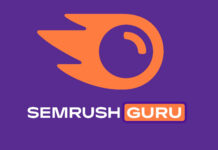Unethical Marketing Leading to Skyrocketing Medicine Prices
In recent months, the prices of medicines in Bangladesh have witnessed a staggering increase by almost 30% to 90%. This surge has left many individuals with limited incomes struggling to afford essential medications, causing distress and financial strain. The unethical marketing practices by manufacturers and distributors have been identified as the key driver behind this price hike, sparking concern and debate among stakeholders.
The Critical Role of Medicines in Healthcare
Health professionals emphasize the critical role of medicines as a cornerstone of healthcare. As a vital component in the treatment and management of illnesses, medicines play a crucial role in ensuring public health and well-being. Recognizing their importance, the World Health Organization (WHO) has designated medicines as one of the six essential components of healthcare, highlighting their indispensable nature in safeguarding public health.
The Impact on Healthcare Spending
Research from the Health Economics Unit of the Ministry of Health and Family Welfare reveals that a significant portion, approximately 65%, of the total healthcare expenditure in the country is allocated towards purchasing medicines. This disproportionate reliance on medicines underscores the essential role they play in ensuring access to quality healthcare services for the population.
Prevalence of Health Conditions and Medicine Sales
Common health conditions such as gastric issues and diabetes are prevalent among the population, with a substantial number of individuals requiring medication to manage these conditions. Pharmacies across the capital report a high demand for various gastric medications, followed by sales of pressure and diabetes-related drugs. Among gastric medications, Sarajel, Pantonic, and Maxpro are the top-selling products, with the Napao group of paracetamol ranking highest in sales.
The Escalating Medicine Prices and Root Causes
Experts point out that the recent surge in medicine prices, ranging from 30% to 90%, can be attributed to unethical promotional activities by pharmaceutical companies. Under the guise of promotional marketing, companies provide gifts or incentives to doctors, which ultimately impact the consumers’ pockets. The lack of government control over medicine pricing allows for unjustifiable price hikes, leading many to question the transparency and fairness of the current pricing system.
The Cost Discrepancy in Medicine Production
The disparity between production costs and sales prices of medicines reveals a significant discrepancy in the pharmaceutical industry. The principle of cost of goods sold (COGS) accounts for 30% to 40% of production costs, with additional expenses related to marketing, promotions, and profits further contributing to the final pricing. Pharmaceutical companies allocate a considerable share of their resources, approximately 15% to 20%, towards marketing expenses, highlighting the substantial financial investment in promotional activities.
The Ethical Imperative in Medicine Marketing
Experts emphasize the need for ethical marketing practices in the pharmaceutical sector to ensure fair pricing and patient-centered care. Dr. Sayed Sabir Haider, a professor at Dhaka University’s Department of Pharmaceutical Technology, underscores the ethical responsibility of companies to engage in transparent and ethical marketing practices. By curbing unethical promotional activities, companies can potentially lower medicine prices and foster a more sustainable healthcare system.
Challenges in Regulating Medicine Prices
Despite the significant impact of unethical marketing on medicine prices, challenges persist in regulating the pricing mechanism. Dr. Mojaherul Haque, a former advisor to the World Health Organization (South-East Asia Region), highlights the need for stringent regulatory measures to address unethical practices and ensure fair pricing. By aligning pricing strategies with ethical standards, the pharmaceutical industry can enhance transparency and accountability, fostering a more equitable healthcare environment.
In conclusion, the escalating medicine prices in Bangladesh underscore the urgent need for ethical marketing practices and regulatory reforms to promote affordability and accessibility to essential medications. By addressing the root causes of price hikes and fostering transparency in pricing mechanisms, stakeholders can work towards building a more sustainable and patient-centered healthcare system.
Bangladesh Time: 02:40 hours, March 18, 2025.
























